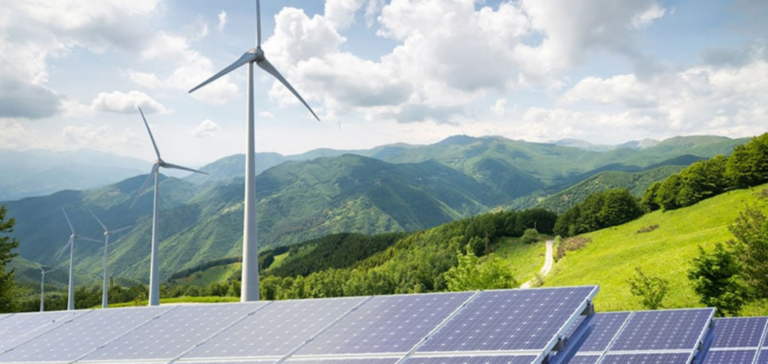The French government recently presented its ambitious energy strategy project, a major initiative to reduce the country’s dependence on fossil fuels. Although complex, this approach is essential for France’s energy and environmental future.
France’s goal of energy independence
Visit
“French strategy for energy and climate”.
(SFEC) is a comprehensive 102-page document, unveiled for public consultation until December 15, before incorporating an energy generation law scheduled for early 2024. This strategy is in line with the guidelines set out by Emmanuel Macron in his speech on energy in 2022.
The role of nuclear power and renewable energies
The goal is clear and ambitious: to eliminate dependence on fossil fuels by 2050. At present, France still relies heavily on oil (37%) and gas (21%). This dependence is not only an environmental challenge, but also an economic one, affecting French people’s energy bills.
Challenges and opportunities in reducing energy consumption
The plan calls for the continued operation of all existing nuclear reactors, in compliance with strict safety standards, while considering new EPR2 reactor projects. At the same time, particular emphasis is being placed on the development of renewable energies. By 2035, the government is aiming for 18gigawatts (GW) of offshore wind power capacity and accelerated deployment of photovoltaic energy, with a target of over 75GW. The government will maintain the current pace of onshore wind power development, doubling capacity to 40 GW.
Economic and environmental prospects of the energy transition
The strategy also recognizes the importance of diversifying energy sources. Biogas capacity is set to increase fivefold by 2030, and geothermal energy is being promoted. By 2035, renewable energies could account for between 65% and 73% of final energy consumption. However, some players, such as SER, regret the absence of more incisive measures for solar and biogas, as well as the omission of marine energy.
However, critical voices are being heard, such as that of Greenpeace, which considers the roadmap and targets insufficient to comply with the Paris Agreement and keep global warming below 1.5°C.
France’s energy strategy marks a decisive turning point towards energy autonomy. While laudable in its objectives, its success depends on the effective implementation of its many components, and on the commitment of stakeholders to this vision. It also raises questions about the balance between ambition and realism, in a context where global climate challenges demand rapid and substantial action.






















